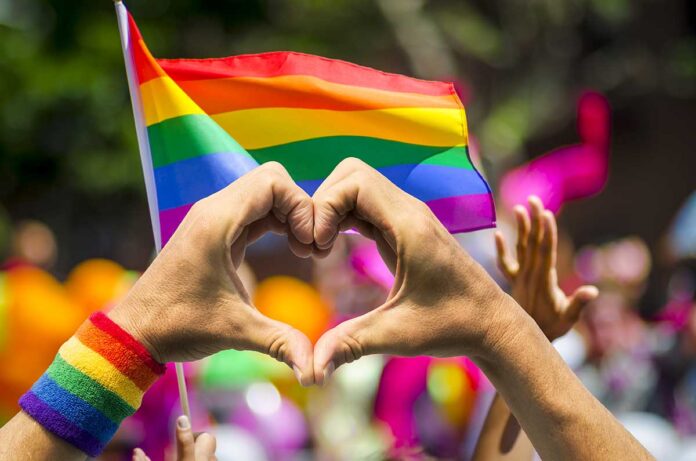In a 3-1 vote Tuesday, York City Council voted to approve an ordinance banning conversion therapy for minors. The controversial practice involves harmful emotional and physical therapy designed to change the sexual orientations or gender identities of LGBTQ+ people in an effort to “cure them.”
“It is sort of a multipurpose ordinance,” said Clare Twomey, executive director of the York City Human Relations Commission. “It is what it purports to be but it is also a message of everything from invitation, inclusion in its best form, acceptance and law-sponsored protection, especially in the state where [the Fairness Act] hasn’t even gone through yet. We don’t even have certain protections under Pennsylvania law for the queer community.”
Twomey, who is an out lesbian, considers the ordinance a kind of referendum that says to LGBTQ+ youth in York City and other Pa. towns with fewer LGBTQ+ protections, that York is a safe place for them.
Conversion therapy has previously been banned in two counties and 12 cities in Pennsylvania, including Philadelphia. Former Pa. Gov. Tom Wolf also issued an executive order last year banning the use of state funds to practice it. Mainstream medical and mental health organizations have also rejected the practice for decades.
The ordinance adds a title to the city code entitled “Youth Mental Health Protection,” and makes it illegal for medical and mental health professionals to practice conversion therapy on minors within York’s city limits. Violations would be considered summary offenses.
“This is a great win for York and for LGBTQ minors,” Jasper Liem, LCSW, executive director of The Attic Youth Center, said in an email. “Conversion therapy has been denounced and proven to cause significantly more harm to LGBTQ individuals, particularly youth and minors. I’m glad to see this ordinance passed and look forward to many more protections for our children.”
Twomey added that in the York City Council meeting on Aug. 15, religious leaders expressed concern about how the conversion therapy ban would affect the church and their theological beliefs.
“This in no way does that because of the constitutional right of free speech and the separation of church and state,” Twomey said. “I still think that remains problematic, not that we should be overreaching into churches.”
Survivors of conversion therapy also spoke at the York City Council meeting, according to Twomey.
“I think that if we are looking at conversion therapy, we have to understand the long-term impact it has on survivors,” she added.
Twomey also briefly discussed the issue of anti-diversity school boards, violent messaging and book-banning manifesting in nearby Pa. counties.
“This just goes beyond a ban of conversion therapy and a call out to [say], ‘we’re not going to stand for any type of discrimination within our city,’” Twomey said.
In a statement from The Trevor Project, Tanner Mobley — an advocacy associate for the nonprofit — lauded York’s efforts while noting steps that still need to be completed.
“Every young person deserves to be loved and respected for who they are, no matter who they love or where they live,” Mobley said. “We applaud the leaders of York for coming together and taking action to protect LGBTQ youth in their communities from the dangerous and discredited practice of conversion ‘therapy.’
“Our research at The Trevor Project shows how harmful and terrible these practices are: LGBTQ young people who have been threatened with or subjected to conversion therapy report more than twice the rate of attempting suicide in the past year than those who have not. Conversion therapy has no place anywhere — and we urge leaders to take up the torch and swiftly enact this type of protection across the entire state.”
The Trevor Project’s 2023 U.S. National Survey on the Mental Health of LGBTQ Young People shows that 15% of LGBTQ young people reported “being threatened with or subjected to conversion therapy,” including nearly one in five transgender and nonbinary young people and nearly one in 10 cisgender young people. Those who were subjected reported more than twice the rate of suicide attempts in the past year.
However, 79% of LGBTQ+ youth said hearing about potential state and local laws trying to ban conversion therapy made them “feel a little or a lot better.”According to the Human Rights Campaign, states that have laws or regulations protecting youth from conversion therapy include California, Colorado, Connecticut, Delaware, Hawaii, Illinois, Maine, Maryland, Massachusetts, Nevada, New Hampshire, New Jersey, New Mexico, New York, Oregon, Rhode Island, Utah, Virginia, Vermont, Washington, the District of Columbia and Puerto Rico. Furthermore, at least 70 cities and counties in Arizona, Colorado, Florida, Georgia, Iowa, Kentucky, Michigan, Minnesota, Missouri, New York, Ohio, Pennsylvania, Washington and Wisconsin have enacted similar protections.
